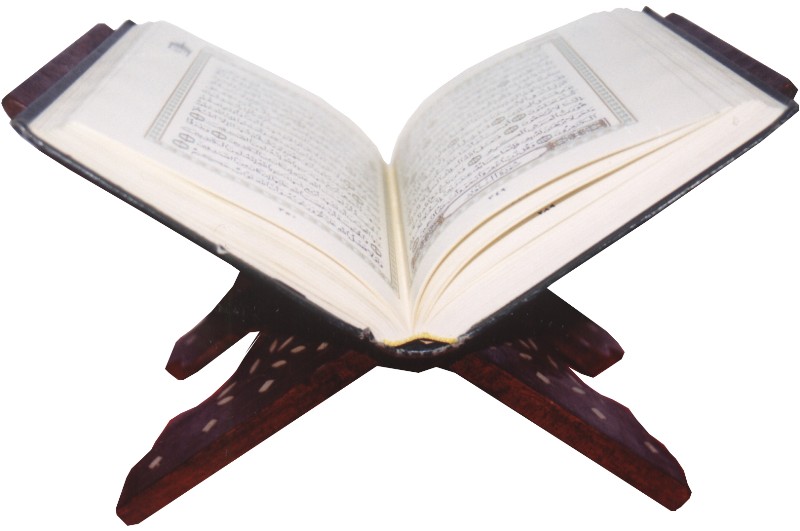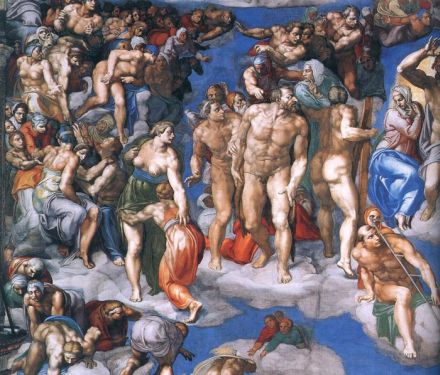The economic life of Islam is also based upon solid foundations and Divine instructions. Earning one's living through decent labor is not only a duty but a great virtue as well. Dependence of any able effortless person on somebody else for a livelihood is a religious sin, a social stigma and disgraceful humility.
A Muslim is enjoined by God to be self-supporting and to stay away from being a liability on anybody. Islam respects all kinds of work for earning one’s livelihood so long as there is no indecency or wrong involved. With a clear conscience and due respect from society the Muslim can roll up his sleeves and undertake any kind of work available to provide for himself and his dependents. Prophet Muhammad is reported as having said that it is far better for one even to take his rope, cut wood, pile it up and sell it in order to eat and give charity than to beg others whether they give him or not. According to Islam, the status of honest working men cannot be lowered on account of the kind of work they are doing for a living. Yet the laboring workers have no limited scope for improving their lots and raising their standards as high as possible. They have equal opportunities at their disposal and enjoy freedom of enterprise.
Whatever the individual makes or earns through lawful means is his private possession, which neither the State nor anybody else can justifiably claim. In return for this right of private possession he has only to fulfill certain obligations to the society and pay certain taxes to the State. When this is done, he has full rights to protection by the State, and his freedom of enterprise is secure and guaranteed. Under the Islamic system the menace of greedy capitalism and destructive communism never arises. The enterprising individual is responsible for the prosperity of the State, and the State in turn is responsible
for the security of the individual. Class conflicts are replaced by cooperation and harmony; fear and suspicion are remedied by mutual security and confidence.
The economic system of Islam is not drawn in the light of arithmetical calculations and capacities of production alone. Rather, it is drawn and conceived in the light of a comprehensive system of morals and principles. The person who is working for another person or for a firm or an institution is ordained by God to do his work with efficiency and honesty. The Prophet said that if any of you undertakes to do any work, God loves to see him do it well and with efficiency. Once the work is done, the worker is entitled to a fair wage for his services. Failure by the employer to pay the just wage, or attempts to cut it down and waver on it is a punishable act, according to the Law of God.
Business transactions enjoy a great deal of attention from Islam. Honest trade is permitted and blessed by God. This may be carried out through individuals, companies, agencies and the like. But all business deals should be concluded with frankness and honesty. Cheating, biding defects of merchandise from the dealers, exploiting the needs of customers, monopoly of stocks to force one’s own prices are all sinful acts and punishable by the Islamic Law. If one is to make a decent living, it has to be made through honest ways and hard endeavor. Otherwise, easy come, easy go, and it is not only that, but anybody that is bred with unlawful provisions will be, according to the Prophet, a burning fuel to the Hell Fire on the Day of Judgment. To combat cheating and exploitation, Islam demands honesty in business, warns the cheaters, encourages decent work and forbids usury or the taking of interest just in return for lending money to the needy. This is to show man that he rightfully owns only what he works for, and that exploitation of other people’s pressing needs is irreligious, inhuman and immoral. In the Qur’an God says:
Those who devour usury will not stand except as stands one whom the Evil One by his touch has driven to madness. That is because they say: ‘trade is like usury’. But God has permitted trade and forbidden usury. Those who, after receiving direction from their Lord, desist, shall be pardoned for the past; their case is for God (to judge). But those who repeat (the offense) are Companions of the Fire; they will abide therein (for ever). God will deprive usury of all blessing, but will give increase for deeds of charity; for He loves not creatures ungrateful and wicked (2:274-276).
And the Firmament has He raised high, and He has set up the Balance (of Justice) in order that you may not transgress (due) balance. So establish weight with justice and fall not short in the balance (55:7-9). This is to guide man to resort to justice and straightforwardness in all his dealings and transactions. The future of cheaters is grim and their doom is awful. Here is how the Qur’an looks into the matter:
Woe to those who deal in fraud, those who, when they have to receive by measure from men, exact full measure, but when they have to give by measure or weight to men give less than due. Do they not think that they will be called to account on a Mighty Day, a Day when (all) mankind will stand before the Lord of the Worlds (83:1-6)?
Besides that, there are numerous Traditions of Prophet Muhammad excluding the cheaters, exploiters, monopolizers and dishonest business people from the band of the true Muslims. Any business deal that involves injustice or cheating or exploitation is strictly inhibited and cancelable by the Law even after it is concluded. The main purpose of the Islamic legislation’s on economics and commerce is to secure the rights of the individual and maintain the solidarity of society, to introduce high morality to the world of business and enforce the Law of God in that sphere of enterprise. It is logical and consistent that Islam should be concerned with such aspects as these, because it is not merely a spiritual formula but a complete system of life in all its walks.
Proprietors are constantly reminded of the fact that they are in reality mere agents appointed by God to administer their holdings. There is nothing in Islam to stop the Muslim from attaining wealth and endeavoring for material improvements through lawful means and decent channels. Yet the fact remains that man comes to this world empty-handed and departs from it likewise. The actual and real owner of things is God alone of Whom any proprietor is simply an appointed agent, a mere trustee. This is not only a fact of life but also has a significant bearing on human behavior. It makes the proprietor always ready to spend in the way of God and to contribute to worthy causes. It makes him responsive to the needs of his society and gives him an important role to play, a sacred mission to fulfill. It saves him from the pit of selfishness, greed and injustice. This is the true conception of property in Islam, and that is the actual status of proprietors. The Qur’an considers possession of wealth a trying test, and not a token of virtuous excellence or privileged nobility or a means of exploitation. God says:
It is He Who has made you (His) agents, inheritors of the earth: He has raised you in ranks, some above others; that He may try you in the gifts He has given you. Verily, your Lord is quick in punishment, yet He is indeed Oft-Forgiving, Most Merciful (6:165).
Moreover, the Qur’an reports to mankind an interesting discourse between Moses and his people. It runs as follows:
Said Moses to his people, ‘pray for help front God, and wait in patience and constancy; for the earth is God’s. He gives it as a heritage to such of His servants as He pleases; and the end is best for the righteous.’
They said, ‘We have had nothing but trouble, both before and after you came to us.’ He said: ‘It may be that your Lord will destroy your enemies and make you inheritors in the earth; that so He may try you by your deeds’ (7:128-129).
This discourse between Moses and his people does not imply in any sense a recognition of any privileged genus of mankind on account of racial origin or ethnic identity. Nor does it mean that the Qur’an approves completely of the conduct and conceptions of the followers of Moses in later centuries. The tone of the text is rather reproachful and critical of the doubters; and reassuring of the fact that everything in the earth belongs to God, Who distributes it among His servants in the form of inherits trusts and objects of trial. The point is brought home time and-.again throughout the Qur’an. For example, it says:
To Him belongs the dominion of the heavens and the earth, and all affairs are referred back to God ... Believe in God and His Messenger, and spend (in charity) out of the (substance) whereof He has made you heirs. For, those of you who believe and spend (in charity)-for them there is a great reward. And what cause have you why you should not spend in the cause of God? For to God belongs the heritage of the heavens and the earth (57:5,7,l 0).
Unlike Communism, Islam replaces the totalitarian artificial supremacy of the Communist State by the beneficial supremacy of God; and the Communist theory of class warfare by sound morals, mutual responsibilities and cooperation. On the other hand, it gives utmost assurances against greedy capitalism and ruthless exploitation by proprietors. The economic system of Islam grants full recognition of the "independent" entity of the individual and his natural aspirations to work and possessions. Yet it does not conceive of him as absolutely independent of God or the universe. It does not deify man or his capital, nor does it deify the proletariat and abolish free enterprise. It accepts man the way he is created and deals with him accordingly, making allowances for his instinctive aspirations and limited power. Man is a man, and he should be accepted and dealt with as such. He is not a god or a semi-god to arrogate to himself absolute powers and unquestionable infallibility. Nor is he a countless or insignificant entity. He is someone to be recognized but in his real status and non- exaggerated or belittled nature. He is not above or out of the rest of the universe but a part of a whole system, an element in the total foundation of the universe.
Although man is encouraged to work, is free to enterprise, is entitled to earn and possess, the fact that he is a mere trustee provides the necessary measure to insure proper handling of his possessions, his trusts. He has authority to earn, to invest and to spend. Yet in so doing he is guided by high principles to save him from going astray. An example may be sufficient to illustrate the point. Proprietors are not unreservedly free to spend their money or handle their properties the way they please. There are certain rules of expenditure to be followed. In the words of the Qur’an, God enjoins upon the proprietor to fulfill his financial obligations towards his fellow men, and to be moderate in his private spending. He is always reminded of the fact that God is the Real Provider and Actual Possessor. Here is the declaration of the Qur’an:
And render to the kindred their due rights, as (also) to those in want, and to the wayfarer. But squander not (your wealth) in the manner of a spendthrift. Verily, spendthrifts are brothers of the Evil Ones, and the Evil One is to his Lord (Himself) ungrateful.
Make not your hand tied (like a niggard’s) to your neck, nor stretch it north to its utmost reach (like a foolish spendthrift); lest you become rebuked and destitute. Verily your Lord does provide sustenance in abundance for whom He pleases, and He provides in a just measure. For He does know and regard all His servants (1 7:26-27, 29-30).






























